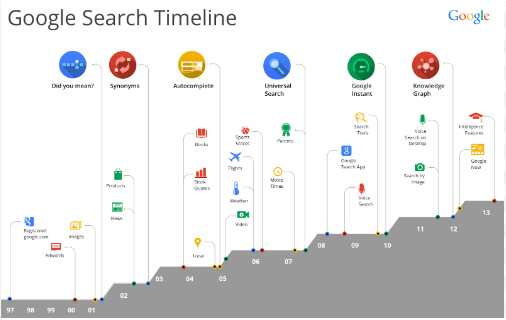
Table of Contents
Introduction
Google Search has become an indispensable tool in the digital age, revolutionizing the way we access and interact with information. As the most widely used search engine, it processes billions of queries every day, providing users with quick and relevant answers to their questions.
Since its launch in 1998, Google Search has evolved significantly, incorporating advanced algorithms and innovative features that enhance the user experience. This article explores the evolution of Google Search, its core functionalities, and the cutting-edge technologies that power its efficiency and accuracy.
The Evolution of Google Search

From its humble beginnings, Google Search was designed to organize the world’s information and make it universally accessible and useful. The initial success of Google was largely due to the PageRank algorithm, which prioritized web pages based on their link popularity.
This foundational approach has since been enhanced with numerous updates and technologies, including personalized search, voice search, and the Google Knowledge Graph. Each innovation has improved the way users find information, making the process more intuitive and efficient.
Core Functionalities

Advanced Search Algorithms
At the heart of Google Search is a suite of advanced algorithms that analyze countless factors to deliver the most relevant search results.
The original PageRank algorithm has been supplemented by other algorithms, such as Hummingbird, Rank Brain, and BERT, which focus on understanding user intent, natural language processing, and the context of queries.
These algorithms ensure that users receive accurate and timely information tailored to their specific needs.
Search Features and Tools
Google Search offers a variety of features designed to enhance usability and efficiency. The autocomplete function suggests search queries as users type, saving time and refining search intent.
The “Did you mean?” feature helps correct common spelling mistakes, while rich snippets and knowledge panels provide quick access to essential information directly in the search results. These features, along with predictive search and real-time results, make finding information easier and more efficient.
Personalized and Contextual Search
Google’s personalized search features use data such as search history, location, and user behavior to tailor search results. This personalization helps users find the most relevant information faster, whether it’s local businesses, news articles, or weather updates.
The context-aware capabilities of Google Search enable it to understand complex queries and provide precise answers, even for vague or ambiguous questions.
Innovations and Technologies

Google Knowledge Graph
The Google Knowledge Graph, introduced in 2012, represents a significant advancement in how search engines understand and present information.
It is a semantic network that maps out the relationships between different entities, such as people, places, and things. This allows Google to provide concise and relevant information directly in the search results, reducing the need for users to click through multiple links.
Voice Search and Google Assistant
With the growing prevalence of mobile devices and smart speakers, voice search has become an integral part of the search experience. Google’s voice search technology, coupled with Google Assistant, enables users to perform searches and receive spoken responses.
This feature leverages advanced natural language processing (NLP) and machine learning algorithms to understand and respond to conversational queries accurately.
Visual Search and Google Lens
Google Lens is an innovative feature that allows users to search using images instead of text. By pointing their camera at an object, users can access information about it, such as identifying landmarks, translating text, or finding similar products.
This visual search capability expands the ways users can interact with Google Search, making it a versatile tool for discovering and learning about the world.
Impact on Society and Business

Google Search has profoundly impacted both individuals and businesses. For users, it provides a reliable and convenient way to access a vast range of information, from simple facts to complex research.
For businesses, Google Search is a crucial platform for digital marketing and customer acquisition. Search engine optimization (SEO) strategies and Google Ads enable businesses to reach their target audiences effectively, driving traffic and sales.
Privacy and Ethical Considerations

As Google Search becomes more sophisticated, it also raises important questions about privacy and ethics. Google has implemented various measures to protect user data, such as secure search and transparent data policies.
However, the collection and use of personal data for personalized search and advertising have sparked ongoing debates about user privacy. Google continues to navigate these challenges, striving to balance innovation with ethical responsibility.
Conclusion
Google Search stands as a cornerstone of the digital world, offering unparalleled access to information. Its continuous evolution, driven by state-of-the-art algorithms and technologies, has made it an essential tool for users worldwide.
From understanding user intent to providing rich, contextual information, Google Search not only meets but exceeds the expectations of its users.
As it continues to innovate, Google Search will remain at the forefront of digital information access, shaping the future of how we find and interact with knowledge.

Maica Diaz, a 20-year-old passionate writer and digital marketer, is known for her ability to create compelling narratives and impactful digital campaigns. With a deep love for storytelling, she excels in crafting engaging content across various niches, including lifestyle, travel, technology, and business. As a skilled digital marketer, Maica effectively uses social media platforms, SEO strategies, and data analytics to drive online engagement and growth. Her innovative approach and dedication to both writing and marketing make her a rising star in her field.
